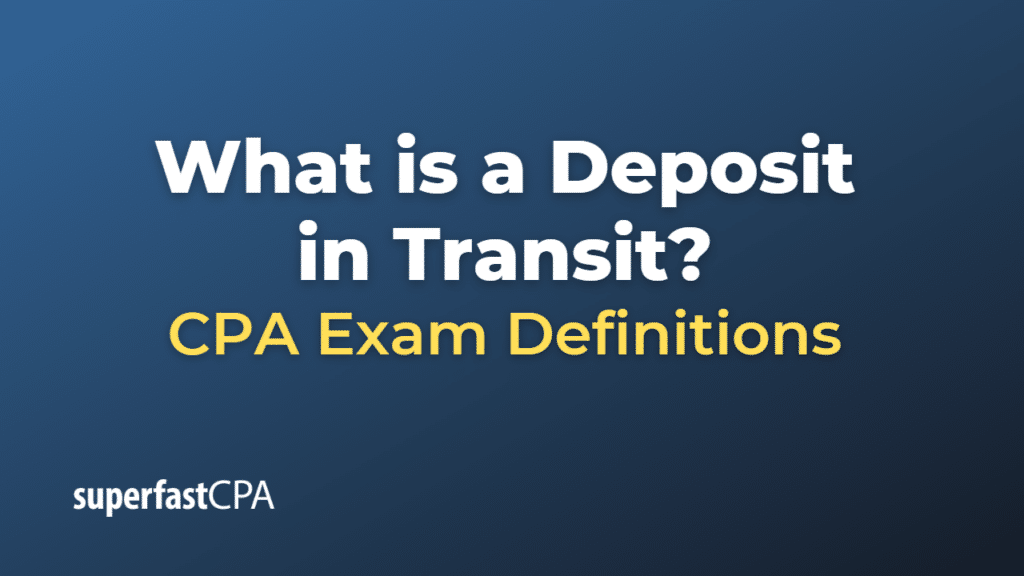Deposit in Transit
A deposit in transit, also known as an outstanding deposit, is money that a company has received and recorded in its accounting system, but which has not yet been recorded or processed by its bank. This often happens due to timing differences in the bank’s and company’s record-keeping processes.
For example, if a retail store makes a cash deposit at its bank late in the day or after the bank’s cutoff time, the bank may not process the deposit until the next business day. The store would record the deposit in its cash account on the day it was made, but the deposit would not appear in the bank statement until the following day or later, depending on the bank’s processing time.
In the context of bank reconciliations, deposits in transit must be added to the bank balance because these amounts were not yet reflected in the bank statement at the time it was issued, even though they are part of the company’s actual bank balance.
Understanding and tracking deposits in transit helps ensure accurate cash accounting and prevents unintentional over-drafting of bank accounts.
Example of a Deposit in Transit
Imagine you run a small business, and on April 30th, the last day of the month, you receive a payment of $5,000 from a customer. You record this $5,000 in your cash account immediately as you have received the money. You then go to the bank to deposit the check, but because it’s late in the day, the bank doesn’t process the deposit until May 2nd.
When you receive your bank statement for the month of April, it doesn’t include the $5,000 deposit because the bank didn’t process it until May. However, in your own accounting records, the $5,000 has been included in April’s cash receipts.
This $5,000 is a deposit in transit.
In this case, when you perform your bank reconciliation at the end of April, you would add the $5,000 deposit in transit to the bank statement balance to reconcile it with your cash account balance. By doing so, you are acknowledging that while the bank hadn’t yet processed the deposit at the end of April, the money was, in fact, received and therefore should be included in your April cash balance.













